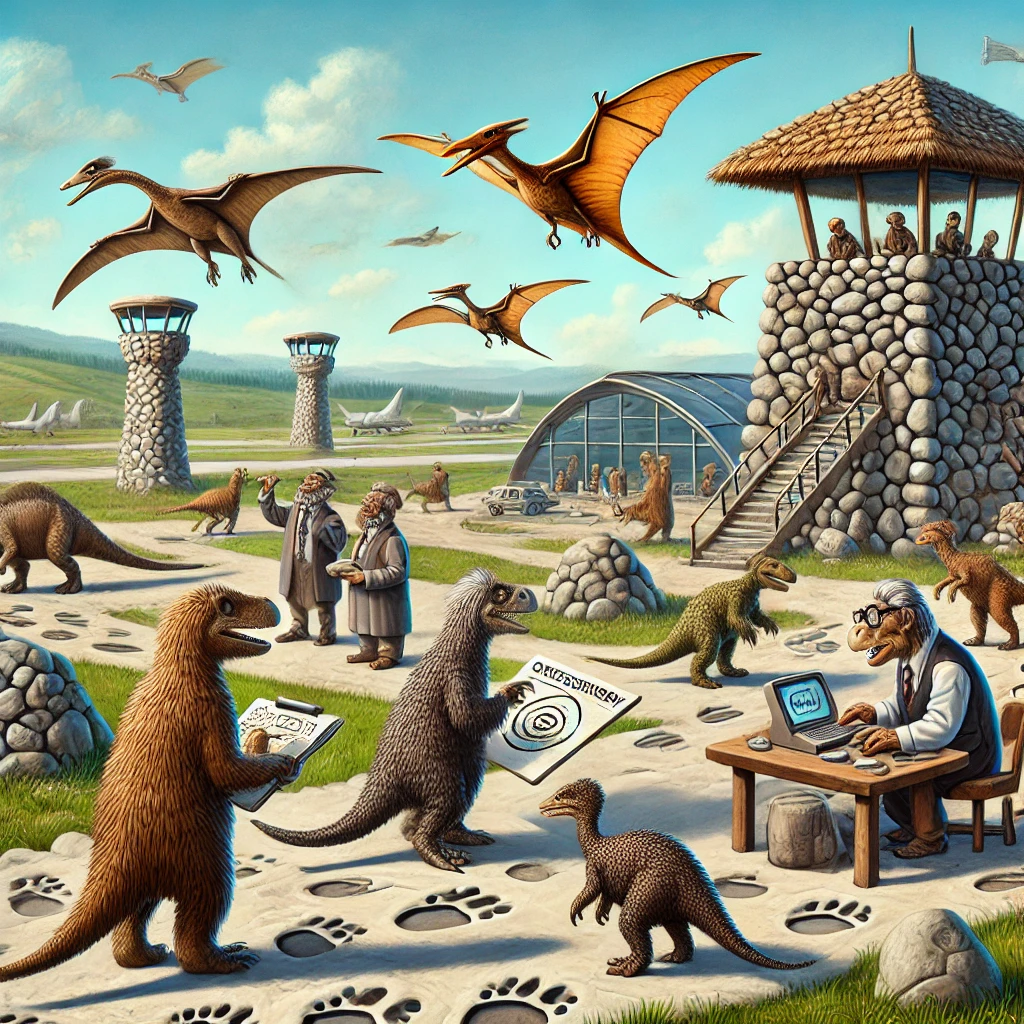Paleontologists have made a discovery so groundbreaking that it has sent shockwaves through both the scientific community and the aviation industry. New fossil evidence unearthed in Montana suggests that dinosaurs may have constructed primitive airports, complete with landing strips and control towers.
Dr. Amelia Pteros, a leading paleontologist from the Jurassic Aviation Society, led the excavation. “We always assumed dinosaurs lacked advanced organizational skills,” said Dr. Pteros. “But what we’ve found here suggests they were coordinating long-distance migrations with shocking precision.”
The site, dubbed “Cretaceous Terminal One,” includes fossilized footprints forming long, straight paths that resemble modern runways. Additionally, researchers uncovered large stone structures believed to have been observation towers. These towers were likely used to guide flying reptiles, such as pterosaurs, to safe landings.
Perhaps most astonishingly, the researchers discovered carvings resembling early flight charts. “These diagrams seem to map out migration routes for both land and air creatures,” said Dr. Pteros. “It’s like finding the prehistoric equivalent of an air traffic control system.”
The discovery has reignited debates about dinosaur intelligence. While skeptics argue that the formations are natural occurrences, proponents point to the uncanny similarity between these structures and modern transportation hubs. “This isn’t the first time we’ve underestimated ancient species,” added Dr. Pteros, referencing the recent revelation of prehistoric humans creating a Google-like system for knowledge sharing. “If cavemen could invent search engines, why couldn’t dinosaurs invent airports?”
The findings have also led some scientists to revisit the Silurian Hypothesis, a speculative idea suggesting that advanced civilizations could have existed on Earth long before humans. “If dinosaurs were capable of building airports, it’s not entirely outlandish to wonder what other technological feats they might have achieved,” said Dr. Pteros. While there is no direct evidence to support such an idea yet, the discovery of organized infrastructure in the Cretaceous challenges long-held assumptions about prehistoric life.
Historians and scientists alike are marveling at how this discovery reshapes our understanding of prehistoric life. The implications could even extend to modern aviation. A major airline has already announced plans to create a dinosaur-themed lounge, complete with “pterosaur-inspired” cocktails and Cretaceous-themed in-flight meals.
Meanwhile, conspiracy theorists have jumped on the discovery with predictable enthusiasm. Some claim that the airport ruins are evidence of time-traveling dinosaurs, while others believe they were built under the supervision of ancient aliens, citing parallels with Atlantis’ alleged housing bubble collapse.
Dr. Pteros urges the public to approach these findings with excitement but also with scientific caution. “We may never know the full story,” she said, “but what’s clear is that the age of dinosaurs was far more complex than we ever imagined. They weren’t just stomping around eating each other—they were building infrastructure!”
As researchers continue to study the site, one question remains on everyone’s mind: Were the dinosaurs’ flights on time, or did even T. rex have to deal with delays?
